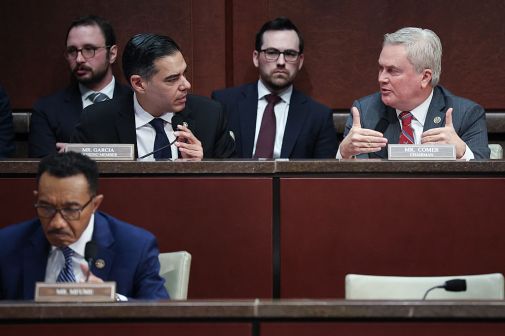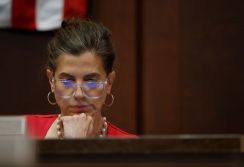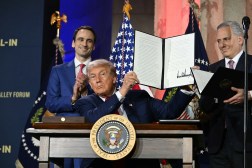Agencies show improvement in second FITARA scorecard

The second round of grades tied to the Federal IT Acquisition Reform Act show an incremental improvement over the initial set of scores last year, with half of the 24 CFO act agencies scraping a pass, FedScoop has learned.
Twelve agencies tied to FITARA scored a “C,” improving upon the “D” the majority of agencies received when the first scorecard was released in November. Seven agencies — USDA, Energy, Education, Justice, Labor, OPM and Social Security Administration — improved by at least one letter grade. One agency, GSA, dropped to a “C” from a “B.”
[Read more: Majority of agencies get D or lower on first FITARA report card]
This time around, NASA was the only agency given an “F.” Last year, NASA was joined by Energy and Education.
This year, Energy would have received a “C,” but it and the Labor Department had their overall grades downgraded to a C- because their FITARA implementation plans have yet to be approved.
The overall grade on the report card was derived from scores for four objectives set by FITARA:
- Data Center Consolidation
- IT Portfolio Review Savings
- Incremental Development
- Risk Assessment Transparency
Agencies showed improvement in the incremental development category, which measures investments that use at least 50 percent of an agency’s planned development spending. There was also a marked improvement in data center consolidation, with a handful of agencies moving up a letter grade in that category.
Agency marks for IT Portfolio Review Savings were worse than the first scorecard, with 18 of the 24 CFO Act agencies earning an “F.” FITARA directs agencies to sit down with the White House’s Office of Management and Budget to assess their IT assets and identify projected cost savings.
The scorecards will be published at a Wednesday hearing of two subcommittees of the House Committee on Oversight and Government Reform. During that hearing, Commerce CIO Steve Cooper, NASA CIO Renee Wynn, Energy CIO Michael Johnson and Labor CIO Dawn Leaf will testify.
Rep. Will Hurd, R-Texas, said while he’s happy with the improvements, agencies still have a lot of work to do.
“Ultimately, taxpayers deserve a government that leverages technology to serve them, rather than one that deploys insecure, decades old technology, and keeps sensitive information in non-encrypted databases,” said Hurd, the chair of the IT subcommittee. “We are not there yet and we have a long way to go, but I am cautiously optimistic that we are moving the needle in the right direction”.
Despite some sore points, the White House seems to approve of the early stages of FITARA. Last month, U.S. CIO Tony Scott said the law culturally propelled IT to a major focal point concerning mission.
[Read more: U.S. CIO: FITARA promotes broader IT discussion in agencies]
“While FITARA was meant to address a set of things, it has big wings that have helped lift a bunch of other things that needed to happen in the federal government,” he said at an April ACT-IAC event.
The hearing will be broadcast on the House Oversight Committee’s website starting at 2 p.m.
Contact the reporter on this story via email at greg.otto@fedscoop.com, or follow him on Twitter at @gregotto. His OTR and PGP info can be found here. Subscribe to the Daily Scoop for stories like this in your inbox every morning by signing up here: fdscp.com/sign-me-on.






